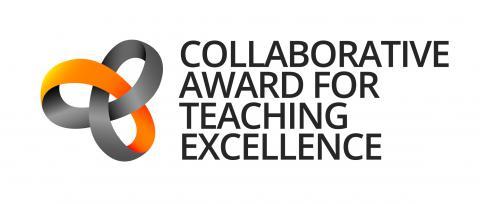Collaborative Awards for Teaching Excellence
Celebrating collaborative work that has had a demonstrable impact on teaching and learning.
NEW: A vision for education and skills at Newcastle University: Education for Life 2030+
About CATE
The Advance HE Collaborative Award for Teaching Excellence (CATE) recognises and celebrates the impact of collaborative work in teaching and learning in higher education. It highlights the importance of teamwork in enhancing the student experience and fostering innovative practices. Applying for a CATE award provides an opportunity to showcase the success and influence of effective collaboration across departments or disciplines. It can raise the profile of your work, strengthen team identity, and open new avenues for networking, funding, and institutional recognition.

2026 Collaborative Award for Teaching Excellence (CATE)
The call for 2026 CATE nominations is now open and the deadline for nominations is Friday 24th October 2025 at 12:00pm (GMT)
Applications to be an institutional nominee
The team should submit an internal application using the form provided: Internal application for CATE award outlining how they intend to meet the two criteria and then email to apt.lts@newcastle.ac.uk by Friday 24th October 12.00 PM (GMT).
Nominations will be reviewed at a panel meeting in November, chaired by the Pro-Vice Chancellor for Education and including current Newcastle NTF/CATE winners and members of the Learning and Teaching Development Service. Each higher education provider can submit one team that demonstrates a clear impact on teaching and learning through collaboration.
Following the panel meeting, the successful team will work with CATE mentors to develop their full submission. This final claim will be submitted to Advance HE in March 2026.
Thinking about applying?
Find out what motivated some of our CATE winners to apply, what it meant to them to learn of their success, and what advice they would give colleagues thinking of applying.
Please contact us if you'd like to speak to the team (apt.lts@newcastle.ac.uk) and we'll be happy to help you get started.
CATE Award Criteria
1: Excellence in the team’s collaborative approach
Evidence of excellence in the team’s approach to working collaboratively; commensurate with their context and the opportunities afforded by it.
This may, for example, be demonstrated by providing evidence of:
- having a clear set of aims, objectives and rationale for the team’s approach and how the group constitutes a team and developed as a team;
- demonstrating direct engagement of students within or with the team;
- illustrating how the team has contributed to wider thematic and sector priorities, for example, assessment and feedback; retention, employability, staff development; students as partners; technology and social media;
- working collaboratively with a range of stakeholder groups;
- embedding practices across different programmes, disciplines, campuses or institutions;
- being flexible and creative in working to address unanticipated situations or events;
- measuring the impact or outcomes of collaborative work.
2: Excellence in the impact of collaborative working
Evidence of the team having a demonstrable impact on teaching and learning beyond their immediate academic or professional area.
This may, for example, be demonstrated by providing evidence of:
- the reach of the team’s work;
- the benefit or value derived from working as a team;
- the impact of supporting colleagues and/or influencing support for student learning;
- the impact on student learning or outcomes;
- the impact of any outcomes/outputs of collaborative work.
2023 CATE Winners
Congratulations to Newcastle University's recent winners SNES Employability team careers service and library, who have received the 2023 Collaborative Award for Teaching Excellence (CATE).
This award recognises our exceptional colleagues who are committed to teaching, learning and student outcomes.
.png)

